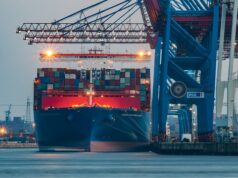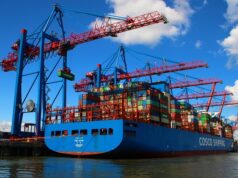
Unless you are buying a one-off low value item online, buying offshore for regular importers and for high-value goods is a complex affair. Ordering goods from overseas suppliers is unlike buying from a local store or supplier. The central post office and customs warehouses at the Ninoy Aquino International Airport and seaports are a testament to how intricate the import process is, since they are full of abandoned and unclaimed goods.
We have outlined below the 5 most common customs mistakes of importers or ‘would-be’ importers which may result in goods not being released from customs, delayed releases and costly storage charges, or imposition of hefty fines and penalties.
- Being ignorant about the import process.Customs process is manual, archaic and tedious. In addition, there are import regulations issued by more than 40 Philippine government agencies and numerous parties involved when transacting across international borders. Offhand, importers need to plan how they import and would need a minimum understanding of the following:
- process and risks in selecting suppliers abroad;
- payment terms and arrangements (e.g. letter of credit);
- role of forwarders and customs brokers; and
- basic import rules and regulations.
It would of course take some time for importers to have a working knowledge of the whole import process; the alternative is to hire an import specialist with proper experience and related training.
- Not understanding Incoterms (International Commercial Terms) 2010. Incoterms provides the international standard for international sales and purchase contracts (cross-border transactions) and sets the rules for interpreting international trade terms. The term used (e.g. FOB or CIF) relates to the specific rights and obligations of the parties to a contract of sale with respect to the delivery of goods sold.
Incoterms defines the roles and responsibilities as to the following:
- Delivery (where and when the seller fulfills obligation to deliver/transfer of ownership)
- Documents (who provides what documents, whether manual or electronic)
- Risks (who bears the risk of loss or damage at any point of transit/ transfer of risk)
- Costs (who pays for what)
The trading terms used will define which party will pay for the insurance, freight or transport costs and, in case of loss or damage to the goods, which party will claim against the insurance.
- Not knowing your product. As mentioned, there are more than 40 agencies that regulate imports in the Philippines. Food, drugs and cosmetics imported in commercial quantities would require product registrations even prior to actual importation. Wood products are required to be heat-treated or fumigated. Chemicals may contain hazardous or prohibited substances.
In addition, numerous products require permits from the exporting countries especially those goods that require quarantine, sanitary and phytosanitary, safety (e.g. in case of hazardous materials) or quality certificates.
Failing to secure import or export certificates from proper authorities may result in the seizure of the shipment. Knowing your product will also help the importer in classifying goods for the purpose of computing taxes and duties. Thus, the importer early on already knows the landed cost of the imported goods.
- Failing to hire a competent forwarder or customs broker. Ordering goods overseas will require the assistance of a freight forwarder. The role of the forwarder is to ensure that goods are properly packed, loaded and transported from the warehouse of the supplier, transferred to loading docks of shipping lines or airlines, unloaded at the port of destination, and finally delivered to the buyer. The forwarder will assist the importer in documenting the whole process.
Most forwarders likewise provide customs clearance service. The importer may hire a service provider that will including forwarding, customs clearance and trucking service. Alternatively, the importer may hire a separate forwarder, customs broker trucker.
It is important for importers to look at the track record and integrity of these service providers. A good customs broker should ensure customs and trade compliance. Failing that, importers are at risk of incurring additional costs or not releasing their goods in time.
- Employing short cuts, not being compliant. Most service providers look at the import process from a purely logistics perspective and as such, there is less focus on ensuring compliance with trade and customs regulations. When confronted with compliance issues, many importers hire ‘fixers’ to resolve their issues. The main concern with short cuts is that the problem is only solved temporarily and the issues may haunt the importer in the future especially when there is fraud involved and when a customs audit is conducted. Importers therefore must always prioritize compliance with customs and trade rules even if doing so may result in delays in the initial stage of the import process. Importers must always prepare and plan properly.
Agaton Teodoro O. Uvero is an international trade, indirect tax (customs) and supply chain expert. He is the Editorial Board Chairman of Asia Customs & Trade, an online portal on customs and trade developments affecting global trade and customs compliance in Asia. For questions, please email him at agatonuvero@customstrade.asia (www.customstrade.asia).












